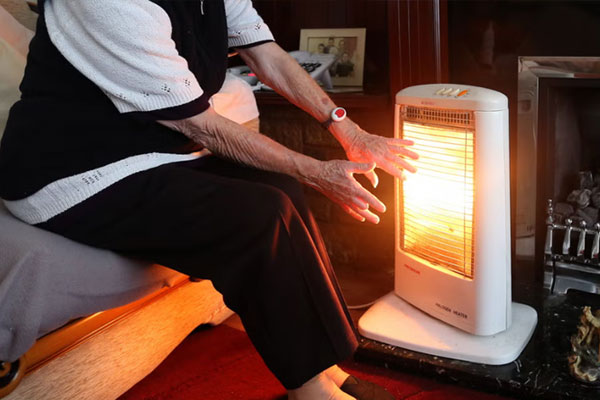A heater is a device that warms the air by conducting heat to increase the temperature. This is a popular heating method that many households prefer during the cold season.
Although very convenient, there are some unexpected hazards of using a heater that can affect the skin and health, which people should be aware of to consider the proper use or adjustment.
Unexpected Hazards of Using a Heater
To use a heater safely and effectively, you need to be aware of the hazards that a heater can cause.
Respiratory System Impact
One of the unexpected hazards of using a heater is the adverse effects on the respiratory system, such as dry nose, leading to nasal and sinus diseases. This is the consequence of using the heater too much.
Weakened Immune System
Many types of bacteria survive longer in dry air. Therefore, the heater can create an environment for bacteria to thrive.
The abrupt temperature change caused by the heater in the room can cause fluctuation in body temperature, which can weaken the immune system and make you prone to illness.
That is why we often get sick and have more colds during the winter season when the air in the room is significantly drier.

Drying out the Skin
Leaving the heater on overnight can also cause our skin to dry out, leading to dryness, peeling, and itchiness. People who tend to have the heater close to them are at the highest risk of dry skin.
Increased Allergy Risk
The heater can stir up dust and allergens in the air, increasing the risk of allergies and respiratory problems in people with sensitive predispositions. This is one of the unexpected hazards of a heater that few people accurately assess the level of impact.
Dehydration
Frequent contact with a heat source can cause dehydration as the body increases sweat production, resulting in moisture loss.
Reduced Air Quality
A heater releases carbon monoxide, a hazardous compound. If your room is not properly ventilated, prolonged high temperatures can negatively affect indoor air quality.
This can have long-term health consequences, leading to respiratory problems such as asthma, allergies, and other illnesses.
Impact on Infant Health
Infants are more sensitive to heated rooms because their skin dries out faster. In addition, mucus is a place where bacteria accumulate. When the mucus dries out, the immune system is weakened, making them more susceptible to infections. Our immune system is strong enough to handle this, but not for infants.
Effects on Male Physiology
One of the unexpected hazards of a heater is its adverse effects on males. Prolonged exposure to high temperatures can impair male reproductive health, especially for users who have the habit of using a heater fan while sleeping overnight.
Potential Fire Hazard
A heater carries the risk of causing a fire. There have been many accidents caused by heaters in rooms. Therefore, make sure you do not cover the heat release part of the heater as it will ignite immediately; do not place polyester clothing near the heater.
Proper Use of a Heater
The unexpected hazards of using a heater mentioned above will only occur if you use the heater without moderation. Just use the heater properly and you can rest assured.
Adjust the heating temperature appropriately: Heater fans/heaters can usually increase the temperature up to about 35 degrees C, but with the climate in Vietnam, you should only turn it on to 22-25 degrees C. Do not place the heater too close to the user. It is best to position the heater about 1.5 – 2 meters away from the seating or sleeping area.
Maintain humidity: You can use a misting machine, an air purifier that humidifies, or simply place a bowl of water in the room to supplement the necessary humidity when using a heater. For infants, you can use moisturizing cream on them.
Ensure good air circulation: Since the heater also functions as a fan that circulates the air, you just need to slightly open a window or the door for air circulation.
Do not use the heater continuously: It is best to let the heater rest for about 30 minutes after every 3-4 hours of use.
According to VTC


































